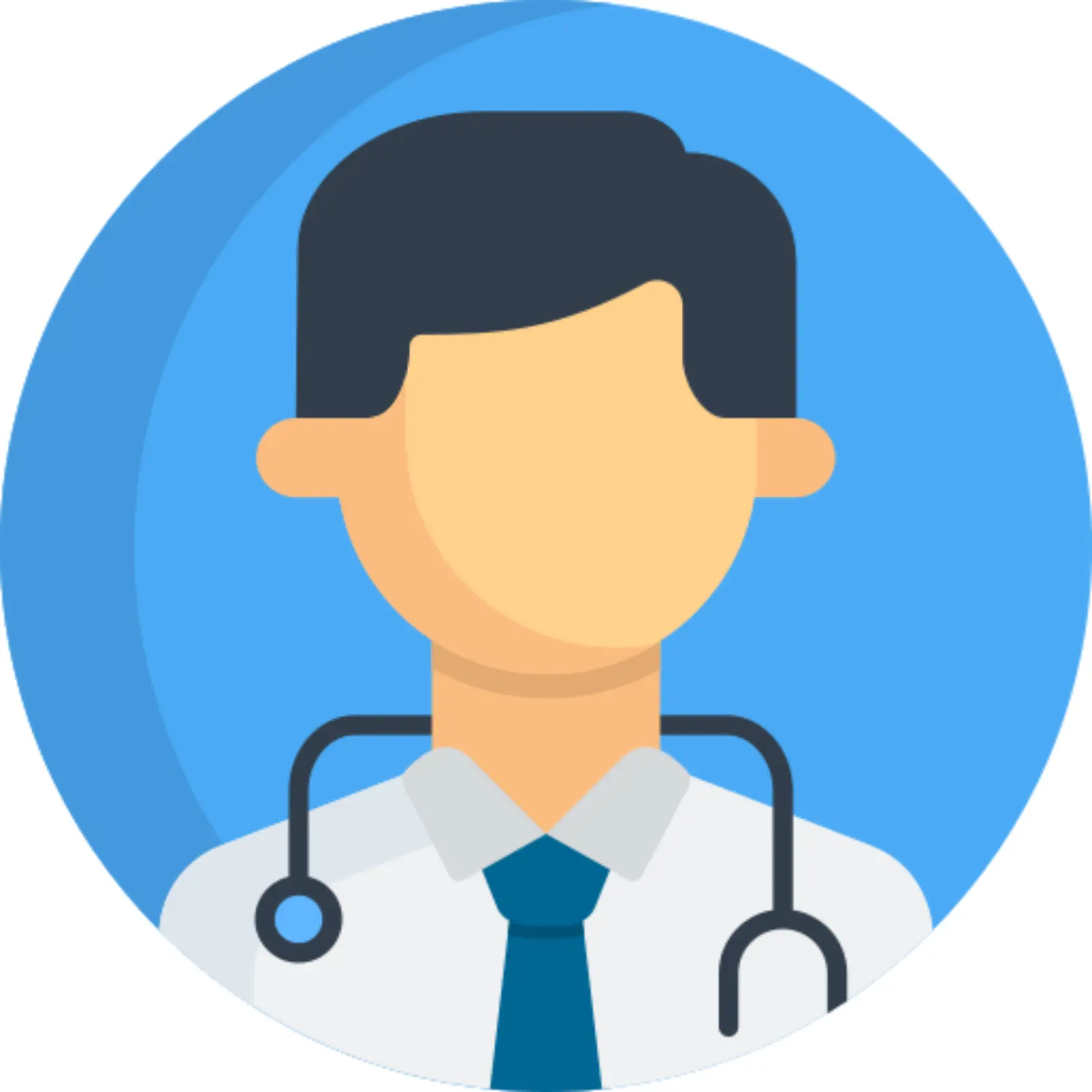Healthcare & Treatments
16373 questions answered by doctors & treatment decisions assisted by team clinicspots.
One stop solution for all your medical queries is here. Our top doctors are here to solve any kind of questions related to your health and fitness. Yes, you are now just a step away from reaching the destination of solutions!
Female | 21
I am 21 years old. My weight is 48kg. And since few months I experienced itching around the anal region. I got to know it was due to pinworms after observing them in stool. Please provide me some medicine for pinworms
Mitali Pawar
Member of team ClinicSpots.
Answered on 23rd May '24
The most common medication used to treat pinworms is mebendazole or albendazole, are prescription medications. Consult a gastroentrologist he will recommend practicing good hygiene, to prevent the spread of infection to others. Washing your hands frequently after using the washroom to prevent reinfection or spreading the infection to others.
Male | 14
R. Sir My daughter, Age 14, is having one normal foot and second one is broad by birth. We had consulted to your goodself in (Dr.Vakhariya Orthopedic Hospital), Jamnagar, Gujarat when she was of 4-5 month of age. At that time your good self asked to take advice after the age of 13/14. I request to guide further in the mette please.

Joint Replacement Surgeon
Answered on 23rd May '24
You must follow up with an orthopedist again to determine if further evaluation is necessary.They may recommend further imaging X-rays or MRI, and may suggest certain treatment or surgery depending on the severity of the condition and any associated symptoms.
Male | 43
Hi, from last 3-4 month i could not hold my urine pressure, when i feel urine i have to be very rush to toilet & can't control to hold it, also frequent urination problem, please suggest.

Urologist
Answered on 23rd May '24
You may have a urinary tract infection or another medical condition that is causing these symptoms. Consult with an urologist to determine the cause get appropriate treatment.
Male | 21
I have adhd and have concerta perscribed to me and recently got a bladder stone, they gave me 2 5mg pills of oxycodone hydrochloride to take if my pain comes back and it has come back now. so my question is can i take oxycodone hydrochloride and Methylphenidate Hydrochloride (ritalin/concerta) together?

Neurosurgeon
Answered on 23rd May '24
I won't recommend you to take oxycodone hydrochloride and Methylphenidate Hydrochloride (ritalin/concerta) together. You should consult with a neurologist first. Both medicines can have stimulant effects on the body and may interact with each other, potentially leading to serious side effects.
Other | 46
I need transgenders cosmetic surgery through Ayushman card. Please let me know hospital list in ncr
Mitali Pawar
Member of team ClinicSpots.
Answered on 23rd May '24
Ayushman Bharat health insurance scheme in India provides coverage for a range of medical treatments and some surgeries. Since the scheme has specific criteria for coverage of cosmetic surgeries its best to consult your local Ayushman Bharat center to see if the transgender cosmetic surgery you are interested in is covered under the scheme. You can check here - best transgender surgery hospitals in India.
Female | 56
My maternal aunt is diagonised with cancer. She is in the first stage and Dr. From TATA said for operation. But her financial condition is not good. Is there any option for subsidies treatment to save her life.

Oncologist
Answered on 23rd May '24
There are many government schemes and programs in India that provide financial assistance for cancer treatment like the Pradhan Mantri Jan Arogya Yojana (PMJAY), also known as Ayushman Bharat. You can check if your aunt is eligible for this scheme, and if so, she can avail cashless treatment for cancer in any empaneled hospital. You can check thjere are various non-governmental organizations (NGOs) and cancer foundations for financial assistance.
Female | 26
My vagina is burning so much from 1 day

Gynecologist
Answered on 23rd May '24
Burning in the vaginal area can be due to infections, allergies, or irritation. Check with a gynecologist for an accurate diagnosis and treatment.
Male | 40
My son in law is 40 years old and for the last 5 days has high blood pressure 180/90 . His face is swelling too. And he took some pills to lower the pressure but it doesn’t get lower than 16 What he should do? Thank you

Cardiac Surgeon
Answered on 23rd May '24
He should immediately consult a cardiologist as he has very high blood pressure which could be a serious health concern. Swelling in the face is a sign of a more severe condition that needs urgent medical attention.
Male | 17
I’ve been able to feel my lymph nodes for about 4 months I don’t have any other symptoms they aren’t big either they are about the size of a bean I can feel two in my groin and one under my jaw

Family Physician
Answered on 23rd May '24
What are lymph nodes and what is their function?
Lymph nodes are small round, bean-shaped organs that are part of the lymphatic system. In turn, the lymphatic system and, therefore, the nodes, are a crucial component in the functioning of our immune system, which protects the body from possible infections and other diseases and their spread.
This lymphatic system is made up of vessels, somewhat larger than capillaries and smaller than veins. The fluid that bathes the cells of our body – interstitial fluid – is collected in part by capillaries and in part by the lymphatic system. This fluid, already as lymph or lymphatic fluid, is slowly transported to the venous system and from there to the heart.
The lymph is made up mainly of water, proteins, minerals and other nutrients and, in turn, by damaged cells or foreign particles such as bacteria or viruses and in cases of cancer , by cancer cells . All lymph passes through the strategically located lymph nodes, where the lymph is cleared of injured cells, cancer cells, and foreign particles.
Lymph nodes contain specialized white blood cells (for example, T and B lymphocytes and macrophages ), designed to engulf and destroy damaged cells, cancer cells, infectious microorganisms, and foreign particles.
Thus, the main functions of the lymphatic system are to remove damaged cells from the body., prevent the spread of an infection (most common) or cancer, in addition to spreading the immune response throughout the rest of the body.
The most nodes are located under the skin at strategic points on the body, especially in -cervicales supraclaviculares- neck, armpits ; others are not accessible. These nodes usually measure from half a centimeter to one centimeter in diameter, although in the groin they can reach two centimeters in normal situation. Sometimes these nodes can be felt under the skin.
Read more about lymph nodes: Why are the lymph nodes swollen? Causes and treatment
Male | 25
I have big veins in penis and premature ejaculation, i want treatment ,

Urologist
Answered on 23rd May '24
You may want to consult a urologist for an evaluation and treatment options for your condition. They can perform a physical exam and run tests to determine the cause of your symptoms and recommend appropriate treatment. Get treated promptly to avoid more complications.
Male | 18
I took 14 paracetamol 3 day before.. what will happen to me.??. currently i am little sick

General Physician
Answered on 23rd May '24
Taking 14 paracetamol tablets at once can be dangerous and can lead to liver damage or failure. Seek medical attention immediately if you are experiencing abdominal pain, nausea, vomiting, or jaundice (yellowing of the skin or eyes).
Female | 23
Period missing please tell me

Family Physician
Answered on 23rd May '24
Missed Periods
Male | 15
I have an arteriovenous malformation with an arteriovenous fistula in the right foot, below the first metatarsal, which treatment is indicated?

Neurosurgeon
Answered on 23rd May '24
Treatment for arteriovenous malformation with an arteriovenous fistula in the right foot below the first metatarsal depends on the size and location of the malformation, the severity of symptoms, and your overall health. Treatment options may include surgery, embolization, or a combination of both. Consult with a vascular surgeon to determine the best course of treatment.
Female | 24
Insomnia, depressed for 5-6 months then got cured but again recurrence and suicidal thoughts.

Neurosurgeon
Answered on 23rd May '24
Talk to your doctor of your symptoms and they can recommend appropriate treatment options like therapy, medication, or a combination of both. Practice good sleep, avoid caffeine and electronics before bedtime and establish a regular sleep routine, this can help improve insomnia symptoms.
Female | 25
M 2 months se depression m hu mujhe koi medicine bataye

Laparoscopic Surgeon
Answered on 23rd May '24